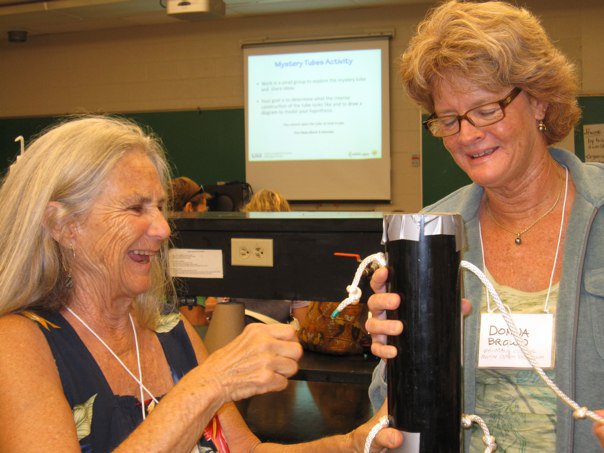Funded in 2011, COSEE Island Earth (IE) is a collaborative network serving Hawaii and Pacific Islands that connects ocean research and teaching with traditional knowledge in order to facilitate active engagement in stewardship by all ocean users. The Ocean Literacy Essential Principles provide a focal point for culture and research to come together to foster ocean literacy among Hawaii residents and visitors. The strong connection of Pacific cultures to the ocean provides a foundation for COSEE IE efforts to link traditional knowledge with scientific research, and indigenous and western ways of knowing. Our objectives are to:
I. Establish a state-wide hub for the purpose of matching the interests and needs of research scientists with those of education and outreach community.
COSEE IE is establishing a virtual hub to connect our network of marine researchers with students and educators by providing opportunities for scientist participation in outreach, and expanded community participation in science. The Online Center for Education Alliances and Networking in Ocean Sciences (OCEANOS) will facilitate collaborations between members of the research and education communities.
II. Enhance the science and ocean literacy of our island and visitor populations.
COSEE IE is working with professionals that have direct contact with resident and visitor populations to provide relevant ocean science resources and professional development opportunities. Collaborative groups include university students, public libraries, ocean-related tour operators, and lifeguards.
III. Connect scientific research, traditional knowledge, and ocean policy.
COSEE IE is developing and supporting culturally relevant, place-based educational materials and programs that bridge formal and informal education, science and indigenous research, and cultural practices among local communities and visitors.
This material is based upon work supported by the National Science Foundation under Grant Number 1039352. Any opinions, findings, and conclusions or recommendations expressed in this material are those of the author(s) and do not necessarily reflect the views of the National Science Foundation.
|

